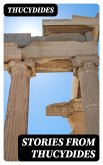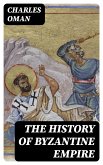Zosimus' 'New History' is a pivotal work in the field of late Roman historical literature. Written in the 6th century AD, this book offers a comprehensive account of the decline of the Roman Empire and the rise of Christianity. Zosimus employs a unique narrative style, blending historical facts with personal commentary and philosophical reflection. His critical analysis of Roman politics, military campaigns, and religious developments provides valuable insights into the social and cultural transformations of the era. 'New History' stands out for its innovative approach to historiography, setting it apart from traditional historical works of the time. Zosimus, a Greek historian and lawyer, was well-versed in Roman history and politics, which likely motivated him to pen 'New History'. His firsthand experience living in the Roman Empire during its tumultuous period informs his writing, offering readers a nuanced perspective on the events that shaped the era. Zosimus' meticulous research and dedication to accuracy make him a respected authority in the field of Roman history. I highly recommend 'New History' to readers interested in Roman history, late antiquity, and the decline of empires. Zosimus' insightful analysis and engaging narrative style make this book a compelling read for scholars and history enthusiasts alike.
Dieser Download kann aus rechtlichen Gründen nur mit Rechnungsadresse in A, B, BG, CY, CZ, D, DK, EW, E, FIN, F, GR, H, IRL, I, LT, L, LR, M, NL, PL, P, R, S, SLO, SK ausgeliefert werden.









